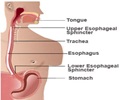Medicines used for the treatment of heartburn and ulcers can reduce the anti-clotting action of the medication clopidogrel, increasing stroke, heart attack
Medicines used for the treatment of heartburn and ulcers can reduce the anti-clotting action of the medication clopidogrel, thereby resulting in about 50 per cent increase in the combined risk of hospitalisation for heart attack, stroke, and other serious cardiovascular illnesses.
This finding is based on a new study that was presented on May 6 at the Society for Cardiovascular Angiography and Interventions (SCAI) 32nd Annual Scientific Sessions.The study specifically focused on the effects of proton pump inhibitors (PPI) omeprazole (Prilosec), esomeprazole (Nexium), pantoprazole (Protonix), and lansoprazole (Prevacid), which together accounted for about 96 per cent of PPI use in the study.
"Given the large number of patients who undergo coronary stent procedures each year, and the recommended and wide use of clopidogrel following this procedure, our findings have implications for many thousands of patients across the United States," said Eric J. Stanek, PharmD, senior director of research, personalized medicine research and development, Medco Health Solutions, Franklin Lakes, NJ, and the study's principal investigator.
"Clopidogrel should continue to be taken as prescribed, and the need for PPI therapy should be carefully evaluated to ensure that it is prescribed only when clearly indicated," the researcher added.
The research team analysed integrated data on pharmacy and medical claims from more than 10 million patients, including 16,690 patients taking clopidogrel for a full year following coronary stenting. On average, 41 per cent of those patients also took a PPI for more than nine months of the year.
Over the 12-month period when patients took clopidogrel, the researchers evaluated the risk of hospitalisation for major adverse cardiovascular events (MACE), which they defined as a combination of heart attack, unstable angina, stroke or temporary stroke-like symptoms, repeat coronary procedures, or cardiovascular death.
Advertisement
According to them, the findings were equally concerning when the effects of individual PPIs were analysed.
Advertisement
Overall, the incidence of hospitalisation for upper gastrointestinal bleeding was only 1.1 per cent among patients taking a PPI and 0.07 per cent among those not taking a PPI.
However, the researchers concede that further studies are required to determine whether newer, less widely used PPIs-such as rabeprazole (Aciphex) and dexlansoprazole (Kapidex)-are also associated with increased cardiovascular risk in patients taking clopidogrel.
They also have plans to study how genetic variations in the liver enzymes that activate clopidogrel might alter the impact of PPIs on clopidogrel effectiveness, the potential influence of the timing of PPI administration, the effect of alternate dosing of clopidogrel, and the comparative effectiveness of other anti-clotting medications.
Source-ANI
THK











